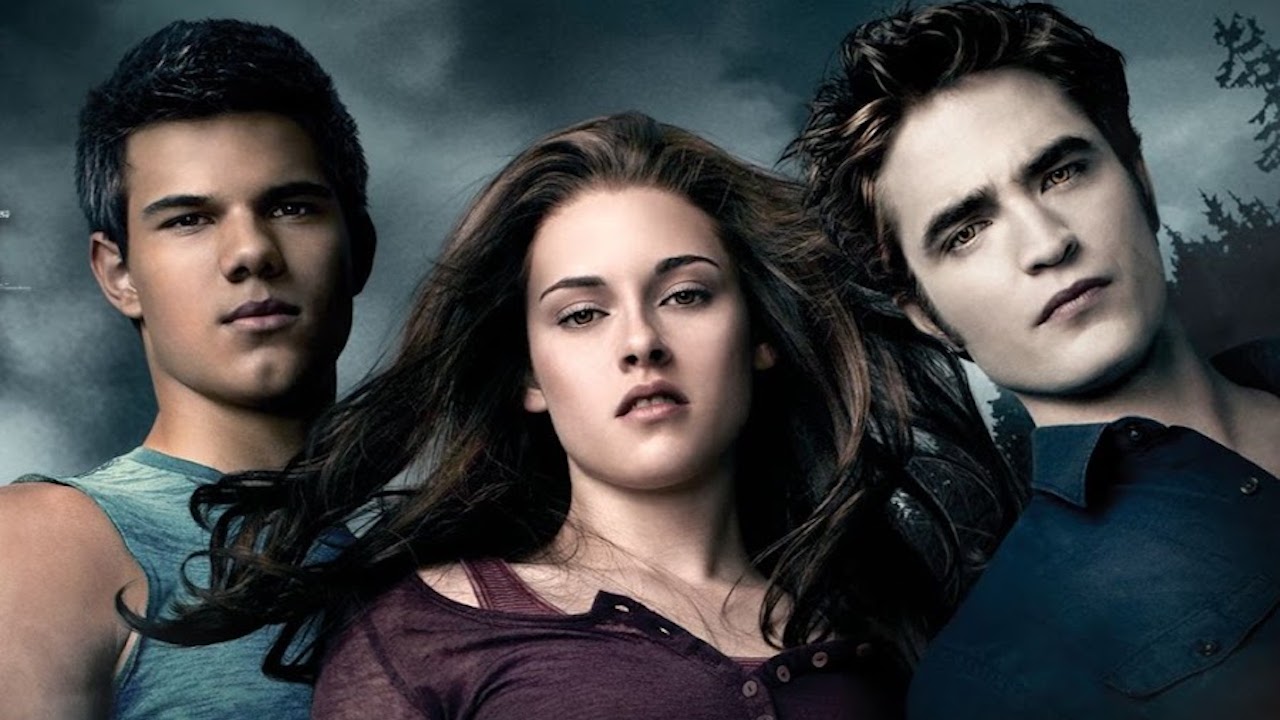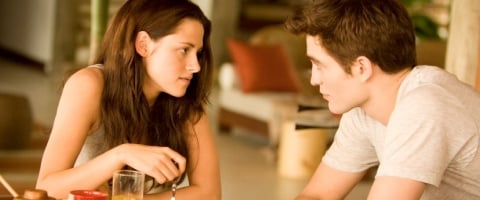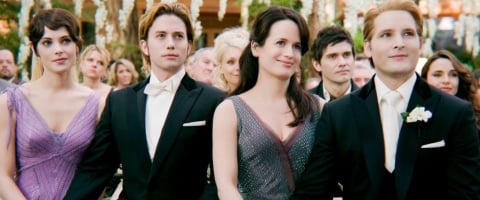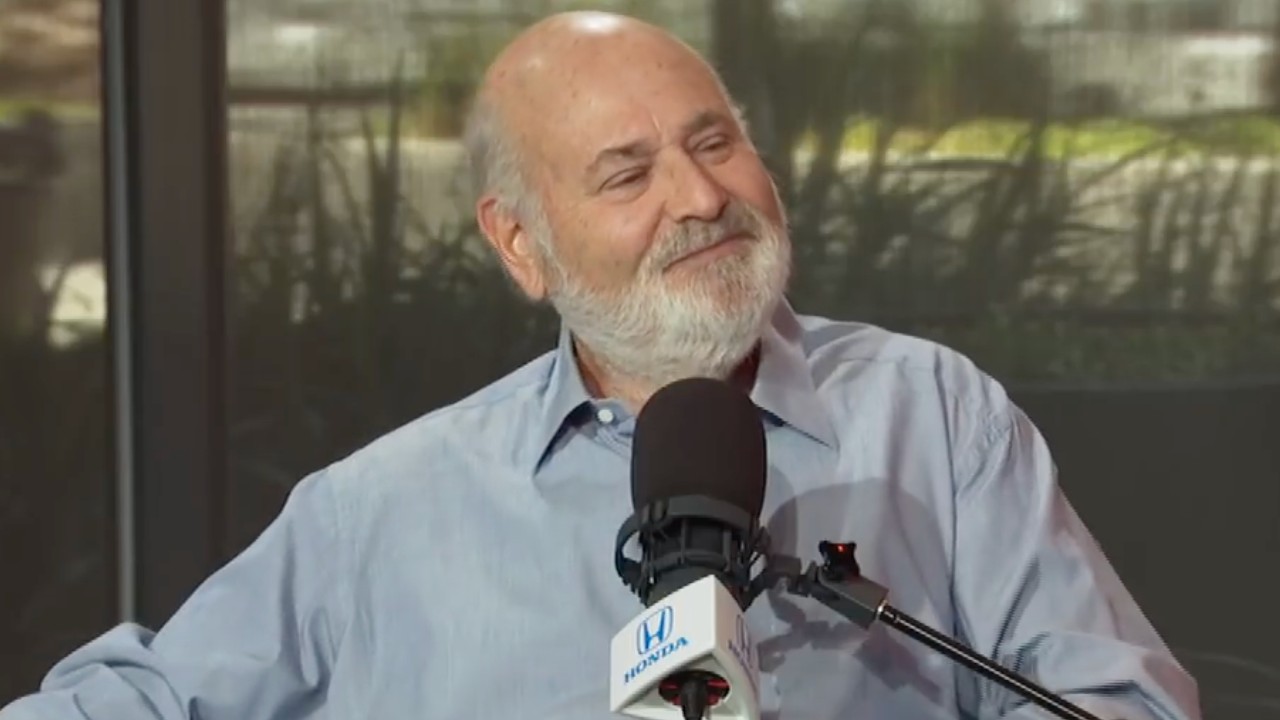Breaking Dawn Screenwriter Melissa Rosenberg On Why Twilight Is So Polarizing

Melissa Rosenberg's name has become almost as synonymous with the Twilight franchise as Stephenie Meyer's or Robert Pattinson's. As the screenwriter of all five movies, Rosenberg has shaped the onscreen version of Bella, Edward, Jacob and company as we know them today, helping build Bella into a more proactive character, making other incremental changes over the years, and now splitting the series' final book, Breaking Dawn, into two films. With Breaking Dawn - Part 1 in theaters today, I talked to Rosenberg about the challenges of this movie's plot, how she wrote a scene about two people wanting to sleep together when no one said the word "sex," and how she reacts to the polarizing reaction Twilight gets online-- you may be surprised by how fired up she gets about it. Check out our conversation below, and see Breaking Dawn pretty much anywhere this weekend.
What was the difference in what Bill Condon brought as a director, especially the way he worked with the actors?
Bill, first and foremost, is a storyteller. He's an Academy Award-winning screenwriter, so he really speaks the language of character and theme and emotional complexity. That's really his forte. He certainly pushed me in that direction. He really kept on pushing me deeper and deeper. He was always more drawn to the first movie than the second, because it's a more intimate story, it's a more character-driven story.
There's a huge section of the film that's basically just Bella trying to get Edward to sleep with her. How do you tell a story about sexual frustration where no one ever says the word sex?
It's al about giving the actors something to play. In this case Bella, she's got that whole case of lingerie-- a lot of it is lifted from the book. I expanded on some of stuff, like the waterfall leaping, and the chess game was Bill's idea. He loved the idea of bringing that into it. A lot of people who are less familiar with how things work thick of screenwriting as dialogue, that we're just writing the dialogue. Actually the thing you're always striving for is to convey something cinematically. If you can convey a story without dialogue, that's sometimes what you're really striving for.

You've had these three movies with these characters who love each other but can't be together, and this time they get to cut loose and actually enjoy married life.
That was great. I loved writing the whole honeymoon section, because they're actually having fun. The struggle is over whether they're going to have sex or not. It's not life or death here! This is about desire and playfulness, and it's lovely to be able to see those actors play that.
Your Daily Blend of Entertainment News
What can you write for the actors now that you couldn't when you didn't know them that well?
I wrote Twilight in a vacuum-- we hadn't cast yet, so I didn't know who I was writing for. The script needed some adjustments when they came on, to write toward them. The characters and the actors became one and the same as the movies went on. You just become more familiar with your voice. It takes less effort to actually hit it.
What specific things do you write for the actors? Are there particularly people who get along, or actors who are especially good at comedy?
Oh yeah-- you always want to give Billy Burke something funny. He's amazing, he not only can deliver the driest line, he also really delivers the poignancy and emotion of scenes. He's a very versatile actor. And Anna Kendrick, you just want to throw funny lines at her.
Anna Kendrick is interesting, because she's the audience surrogate in that wedding scene. How important is it to have someone standing outside the situation and recognizing, yeah, this is kind of extreme, to get married at 18.
I personally love to undercut the earnestness as much as I can without-- you want to have a sense of humor about yourself. And there's plenty of earnestness left, so I wasn't undercutting them too much.
Was there a challenge in Bella's role in the second half of this movie, because she's literally stuck on the couch in her pregnancy. How did you make sure she wasn't just lost in the narrative?
Well, she's fighting for her life. It's a challenge, and that was one of the hardest parts of writing this movie. From the moment she's pregnant to the moment she gives birth, how do you have this not being about someone lying around dying. She, in this movie, the character of Bella is the most pro-active in some ways. She has made a decision to keep this child, and she is convinced that she can do it. She's convinced that she's going to live. She's not waiting around to die, she doesn't think she's going to. But the whole time she's really fighting to survive. It has to be conveyed by the actor, and in the scenes she has with Edward and Jacob. She doesn't see it as lying around waiting to die.

Do you have a favorite part in the movie?
The wedding. The wedding toasts, for sure. That's the kind of stuff I love writing. And Bill shot it with all the reaction shots he gets out of Billy, Bill is a really good partner for delivering that humor.
Have you learned to look past the criticism and the negative attention from fans?
I can read 20 comments that are all positive and glowing, and then there's the one guy, wherever he is, who says "Yeah, she butchered these, her hands should be cut off." And that colors my whole day, and I can't write then. The critics I hear louder than the praise, and I think for sure there's a lot more praise than critics. But my personal damaged psyche hears the critiques more.
Do you know why Twilight is so polarizing?
It's seen as a girl movie. And girl is not cool. Anything female is not cool in the Comic Con world. If you're a guy who likes this movie, it's like, oh, you're not a real man, this is a girl thing. It falls into that, and it pisses me off actually. It's a reflection of our culture and our culture sees anything female as less-than. You know what? These girls around the world have made us a $1.8 billion franchise. So there's a lot of power going on there. If the culture could allow guys to enjoy something that was actually female, I think that stuff would go away.
I wish people could recognize how much fun the wedding scene is to watch. It's a spectacle like an action movie, and instead of explosions it's a wedding dress.
Guys naturally are not going to be drawn in by that, but it's also so much social conditioning, that it's not OK for them to be drawn into that. It's the same social conditioning that ends with us making 77 cents on the dollar.
(Melissa Rosenberg photo via Helga Esteb / Shutterstock.com)
Staff Writer at CinemaBlend

